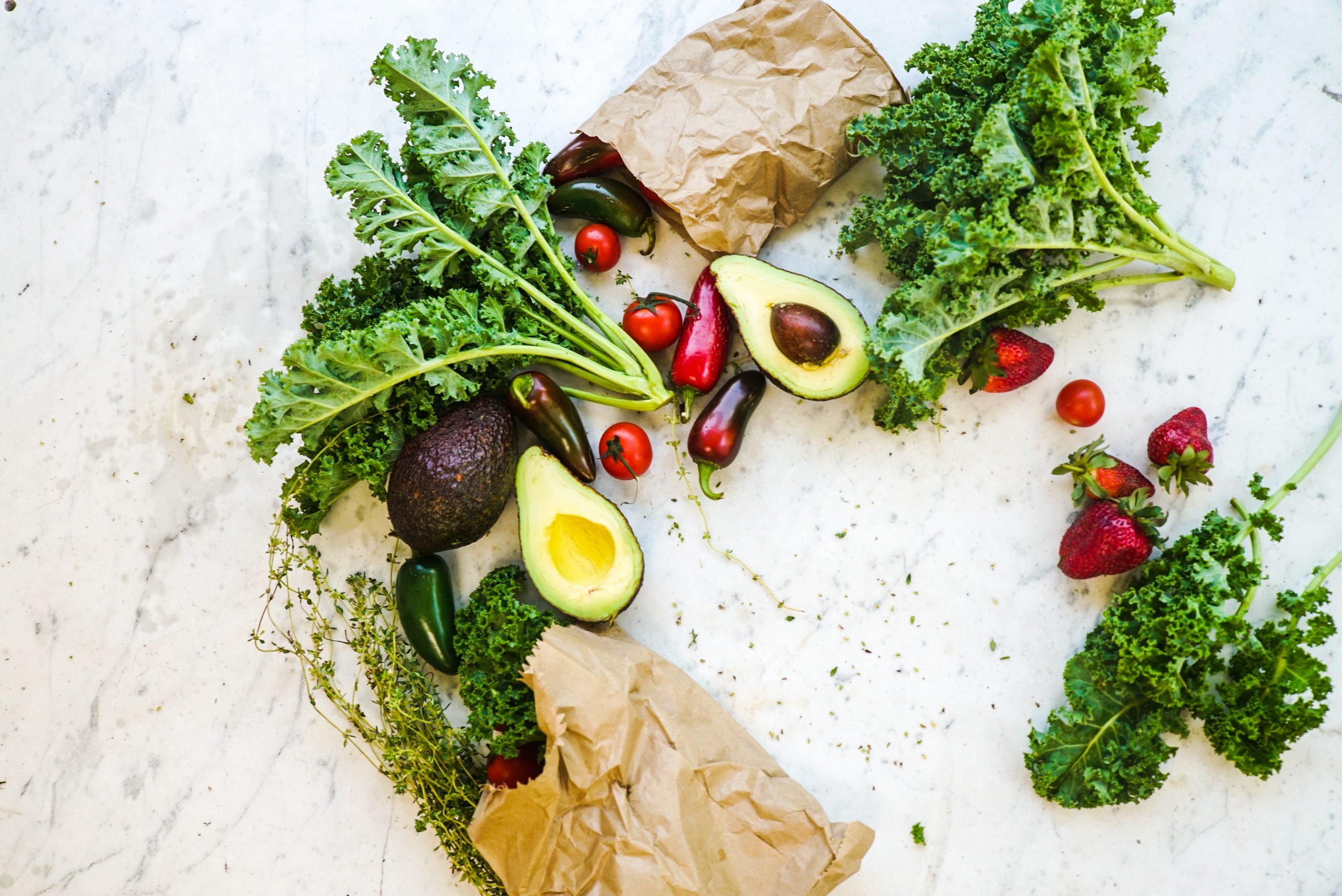by Laura Forsyth | 30th March, 2023 | Nutrition
Maintaining good gut health is essential for overall health and well-being. In recent years, there has been an increasing interest in the role of diet in promoting optimal gut health.
In this article gut health dietitian Dr Sammie Gill explains the connection between gut health and diet and offers practical tips to help support gut health through dietary changes.
The human microbiome is the complex and thriving community of all the microbes that live in and on us – around 40 trillion!
But most of these microbes reside in the gut (more specifically, the large intestine), and is collectively known as the gut microbiome.
The gut microbiome is a hub of activity – it produces lots of important compounds that can affect other organs of the body including the brain, skin, liver and heart. They produce vitamins too, such as vitamin K and some B vitamins.

Gut microbes can perform functions the human body can’t. For example, they break down all of the non-digestible nutrients (such as fibre and plant chemicals) and in exchange, release beneficial molecules such as short-chain fatty acids (SCFAs) which play a key role in gut health, such as supporting the gut barrier.
Your gut microbes are also mentors to your immune system. Impressively, 70% of your immune system sits along your gut and our gut microbes play a key role in how it behaves. In fact, they support the immune system to develop by teaching and training it to react appropriately – to trigger a response to potentially harmful microbes and to remain tolerant to harmless ones.
Nurture your gut microbiome well with the right things (discussed later on) and it will reward you. If you don’t, it can start to suffer which can have implications for health later down the line.
In a nutshell, looking after your health and wellbeing means looking after your gut.

The gut-brain axis is the two-way communication that goes on between your gut and your brain. How we feel plays a huge role in how these organs function; both gut health and mental health are very much connected.
For example, mental health conditions such as depression and anxiety are often linked with chronic gut disorders, such as irritable bowel syndrome (IBS).
What’s more, studies have shown that if you target the gut, you can influence how you feel. For example, the SMILEs trial showed that eating a Mediterranean-style diet can help with symptoms of depression, certain live microbes (labelled ‘psychobiotics’) have also shown potential, and there have been some encouraging, early results using faecal microbiota transplantation (FMT).
What’s more, serotonin (commonly labelled the ‘happy hormone’) is a chemical messenger with a reputation for regulating how we feel and behave. But did you know that only 5% of serotonin is actually produced in the brain? The other 95% is produced in the gut, mainly by the cells that line the gut wall (called enterochromaffin cells). It’s one of the reasons why the gut is also labelled the ‘second brain’.
Both ‘types’ of serotonin are exactly the same – they are just produced in different places and by different cells. One of the key questions scientists are currently trying to answer at the moment is how gut-based serotonin can affect the brain…
READ MORE: The Vegan Diet: Busting the top 3 most searched myths

While there is no one measure of ‘gut health’, a sign that your gut may need some attention is if you’re experiencing symptoms such as pain, bloating, gas, or changes in poop habits – for example, constipation, diarrhoea or a mix of the two.
These symptoms are typical of IBS – a very real and common gut condition affecting around 10% of the population, but it’s important not to self-diagnose. This is because symptoms overlap with other gut conditions (such as coeliac disease). It’s crucial to get the correct diagnosis to optimise symptom management.
If you are experiencing gut symptoms, book an appointment with your GP.

Our gut health is mouldable, and it’ll change depending on what you expose it to. Many things play a role in gut health including whether you have a pet, how much time you spend outdoors, what you eat, how much exercise you do, how much sleep you get, what medications you take, and how stressed you are (to name a few!).
So it’s important to focus on the things it needs, for example lots of plant-based diet diversity (including wholegrains, nuts, seeds, herbs, spices, veggies, fruits, legumes), getting good quality and quantity of sleep, and minimising stress.
Focus on adding in, rather than taking away. Work from the inside out– our gut health is central to our overall health so target the gut microbiome with a nutrient-dense plant-based diet. Variety is key – a hallmark feature of a healthy gut microbiome is diversity.
Plant-based foods are packed with different types of dietary fibre – a nutrient our gut microbes love, as well as vitamins, minerals and plant chemicals including polyphenols.
Remember, it’s not just about what you eat, it’s also how we eat. Try and ringfence time for eating, if you can. Minimise distractions (e.g. phone, TV) and chew your food well to help with digestion.
Supplements can be beneficial in specific scenarios. For example, some probiotics or peppermint oil can be useful in managing symptoms of IBS, while fibre supplements (such as psyllium husk) can be useful for improving poop consistency (diarrhoea or constipation).
But speak to a healthcare professional first (such as registered dietitian) who can advise and tailor to your individual needs.
Want to have great tasting meals to help support a healthy gut? Then try our meal plan service today with healthy, fresh ingredients ready in just 3 minutes.